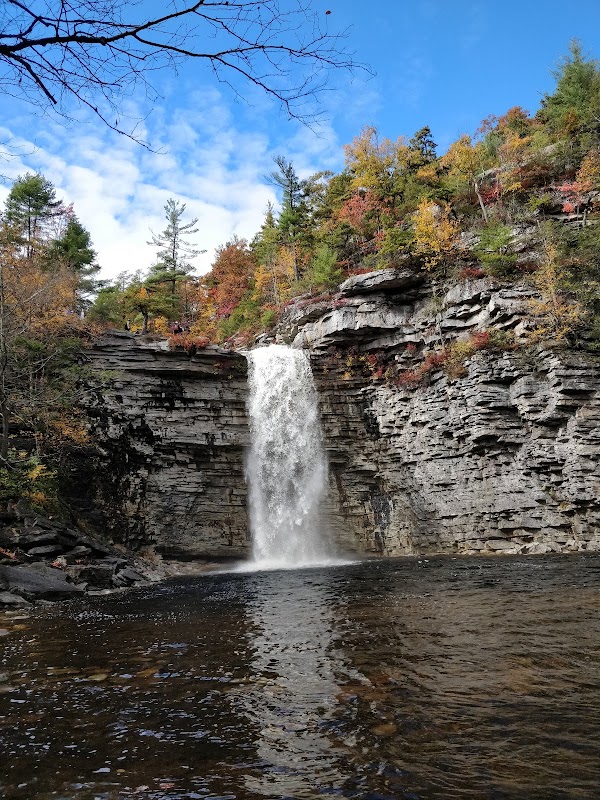
Experience hands-on farming and vibrant seasonal fairs at Queens County Farm Museum in South Ozone Park. These lively events blend educational activities with outdoor fun, perfect for visitors seeking meaningful, accessible adventures just outside New York City.
Dress for Muddy Trails
Farm paths can be uneven and muddy, especially after rain. Wear waterproof shoes or boots to stay comfortable.
Arrive Early to Avoid Crowds
Fairs get busy on weekends. Early arrival ensures better parking and less crowded experiences at popular activities.
Bring Water and Sun Protection
Even with shaded areas, summer fairs can be hot. Carry water, hats, and sunscreen, especially if you plan to stay for several hours.
Plan for a Half-Day Visit
With trails rarely exceeding two miles and many activities, half a day is ideal to explore comfortably without rushing.
Seasonal Fairs at Queens County Farm Museum: A Hands-On Adventure in South Ozone Park
The Queens County Farm Museum, located in South Ozone Park, New York, offers more than just a glimpse into urban agriculture—it invites you to engage with the land across its seasonal fairs. Each event invites visitors to experience farming as a dynamic force, where heritage meets hands-on adventure. The farm's fairgrounds stretch over 47 acres of working farmland, where soil, crops, animals, and artisans each have a story to tell.
Spring’s Equinox Fair awakens the farm with fresh seedlings, blooming tulips, and the promising aroma of earth coming back to life. Trails through the vegetable plots offer sensory encounters: the crisp snap of asparagus stalks, bees buzzing busily as they dare you closer, and lambs gamboling in the distance. This fair runs from March to May, making it perfect for early spring outings.
Come summer, the Harvest Fair bursts into color with rows of ripening tomatoes and ears of corn standing tall like guards of the soil. The festival zips with live demonstrations—from hay bale stacking to traditional beekeeping—that respect the land’s rhythm and teach practical skills for urban and rural farming alike. The summer fairs run mid-July through August, catching the heat when the farm hums at full throttle.
Fall's Pumpkin Festival paints the farm bright orange and gold. It’s a playground filled with activities: hayrides that wind through forested edges, corn mazes that challenge your sense of direction, and hands-on cooking classes that transform freshly picked produce into simple, hearty meals. The fair typically runs from late September through October, when the air turns crisp and leaves crunch underfoot.
Winter is quieter, but the December Holiday Fair welcomes you inside the barn’s warmth. Local craftspeople exhibit their goods, inviting visitors to appreciate the slower season’s gifts. It’s also a time for educational talks on soil conservation and preparing the land for seasons ahead.
Each fair is a manageable but immersive adventure. Expect modest walking distances—generally under two miles—with mostly flat terrain dotted by natural inclines. The farm’s paths keep a practical balance between dirt trails and grassy lanes that stay accessible through varied weather, although waterproof footwear is recommended after rains.
Hydration remains key despite the approachable scale, especially in summer’s simmering days. Early mornings or late afternoons offer softer sunlight, helping you avoid midday heat while catching the farm’s golden glow. Parking is available on-site but fills quickly on weekends, so plan to arrive early for a stress-free visit.
Queens County Farm Museum’s fairs offer more than entertainment; they cultivate a respectful relationship with the land’s cycles and demands. With a blend of education, activity, and seasonal spectacle, they empower visitors to engage with nature as a force that is fiercely itself—not tamed, but worked with.
Whether visiting solo, with family, or as part of a group, these fairs provide an accessible, enriching adventure that balances open-air discovery with grounded, practical learning.
Nearby Trips
All Adventures
Boat Charters
Water Activities
Adventures near South Ozone Park, New York
Discover the unique and memorable adventures that make South Ozone Park, New York special.
Frequently Asked Questions
Are the seasonal fairs kid-friendly?
Yes, the fairs are designed for families with children, featuring hands-on activities like animal feeding, hayrides, and crafts that engage young visitors safely.
Is there parking available on-site?
The farm offers parking, but it fills quickly during popular fair days. Arriving early or using public transit options near South Ozone Park is recommended.
Can visitors purchase farm produce at the fairs?
Absolutely. Seasonal fairs feature farm stands where you can buy fresh, locally grown vegetables, fruits, and artisanal products directly from the growers.
Are dogs allowed on the farm during fairs?
Pets are generally not allowed during fairs to protect farm animals and to maintain safety for all visitors.
What historical significance does the farm hold?
Queens County Farm Museum is one of the oldest continuously farmed sites in New York, with over 350 years of agricultural history reflecting the city's rural past.
Are the trails accessible for strollers and wheelchairs?
Many pathways are compacted dirt and grassy lanes suitable for sturdy strollers and some wheelchairs, though some rougher spots may require assistance.
Recommended Gear
Waterproof Footwear
Keeps feet dry when trails get muddy from spring rains.
Reusable Water Bottle
Staying hydrated is key, especially during warmer fairs.
Sun Hat and Sunscreen
Protection against strong summer sun while exploring open fields.
Light Jacket
Useful for cooler mornings and evenings during autumn visits.
Local Insights
Hidden Gems
- "The orchard on the farm's northern edge offers a quiet space with scenic views"
- "The historic farmhouse gardens bloom with heirloom flowers rarely seen elsewhere in NYC"
Wildlife
- "Eastern cottontail rabbits often dart near the vegetable patches"
- "Various bird species like red-winged blackbirds and barn swallows are active during warming seasons"
History
"Established in 1697, the farm remained family-operated for centuries before becoming a museum, preserving both agricultural practices and diverse cultural narratives of Queens."
